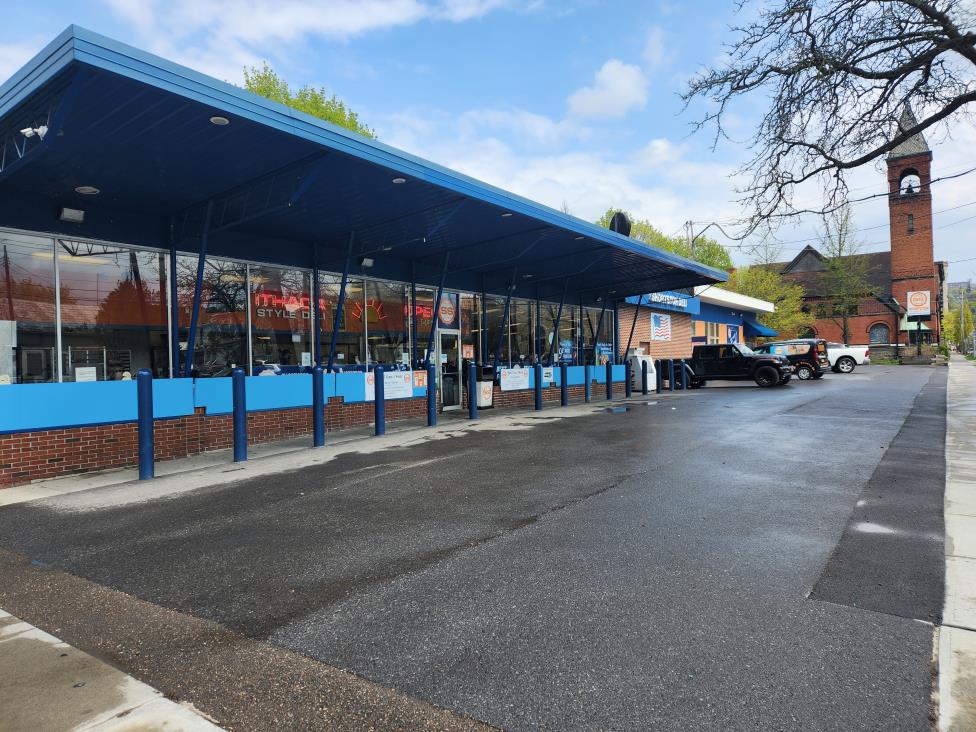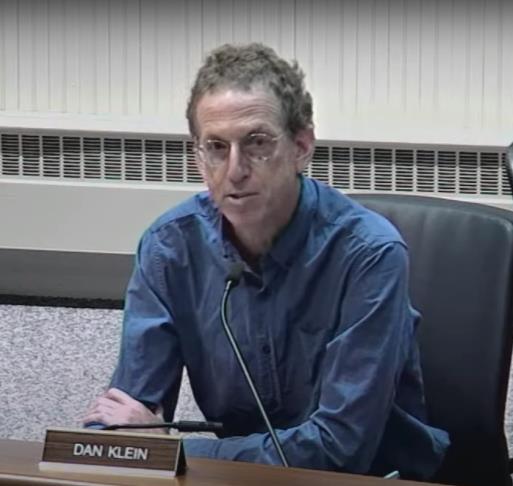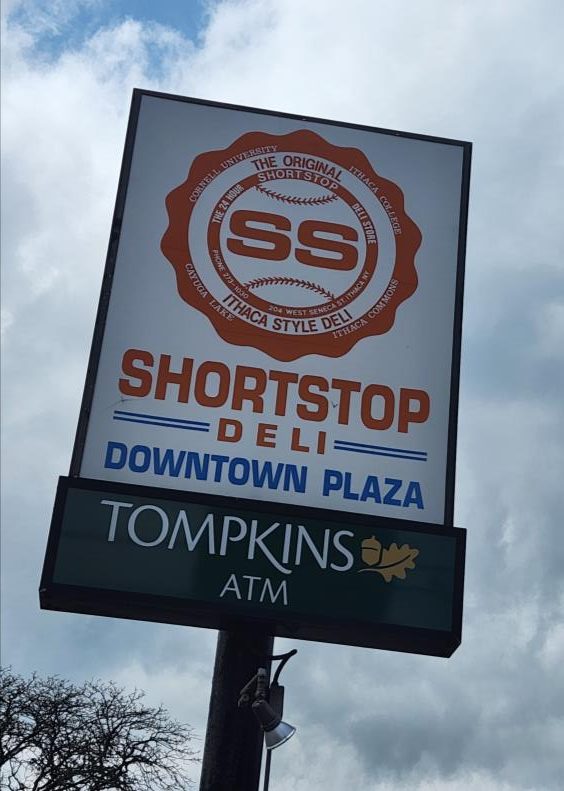Community Council, EVFC Face Second-Round Recovery Fund Snubbing
by Robert Lynch, April 26, 2023
How does a commercial Ithaca delicatessen secure American Rescue Plan funds and Enfield’s non-profit Community Council and Fire Company do not? Apparently, it’s when the money gets doled out by Tompkins County Government.

Draft documents posted this week in advance of a pivotal meeting Monday by a County Legislature advisory committee would drop both the Enfield Volunteer Fire Company and the Enfield Community Council below the funding cutoff point for a second-chance bite of the Tompkins County Community Recovery Fund, the county government’s multi-million dollar pass-through program for federal ARPA assistance.
At the same time, according to the consultant-aided spreadsheet, the product of a process in which all 14 Tompkins County legislators got to score 35 eligible funding applicants, a “Revitalization” request by Ithaca’s Shortstop Deli ranked third-highest. The spreadsheet lists 11 legislators as recommending Shortstop for funding. Only five supported the Enfield Fire Company’s capital request; and just three backed ECC’s proposal to build a mental health wing.
“Something’s wrong here, very wrong,” Enfield Councilperson Robert Lynch (this story’s writer) said upon viewing the preliminary scoring sheet Wednesday.
“I know these are tough calls. And I applaud our Enfield legislators for putting each of our community applicants’ best foot forward. But when a private business, no matter how worthy, no matter how desperate, gets targeted for public funding, and a local agency like the ECC gets not a dime, despite its valiant desire to improve mental health, I’d say some people downtown have their priorities mixed up,” Lynch said.
Enfield found one bright spot in the latest round of legislator recommendations. The Town of Enfield’s own application for $26,992 to purchase replacement communication radios for its Highway Department gained legislative recommendation. Of the 14 applications placed in line for recommended funding, the Enfield radio request ranked fifth highest, endorsed by nine of the 14 legislators.
The funding spreadsheet released this week—the product of individual legislator’s rankings and the consultant’s compilation of those preferences—marks only the first in a three-step process for this second-round of appropriations. Draft resolutions based on the legislators’ rankings will face review by the County Legislature’s Community Recovery Fund Advisory Committee May first. The committee’s final recommendation will then head to the full County Legislature for ratification later in the month.
This latest opportunity for agencies, governments and small businesses to get this public money arose only after one earlier preferred recipient, Newfield’s Second Wind Cottages, dropped out of the competition. It voluntarily forfeited its $510,000 Recovery Fund award in late March amidst local opposition to its plans to use the money to construct temporary housing for otherwise homeless men at the Second Wind site off Route 13 north of the Newfield hamlet. Second Wind’s withdrawal freed up its portion of the county’s larger $6.5 Million Recovery Fund, the remainder of which the County Legislature assigned to a list of more than 50 applicants in late December.

In addition to the Enfield application for highway radios and the Shortstop Deli’s request for “revitalization” funds, applicants recommended this time for support include Khuba International’s communal farm in Danby, the Finger Lakes Reuse products repurposing firm, and the Town of Dryden’s fiber-optic broadband expansion, each recommendation based on the just-completed second-round scoring. The Dryden broadband request, recommended to receive more than $75,000, got inadvertently overlooked by the consultants last October when more than 200 other applications were tendered to Tompkins County and the consultant for consideration.
Aside from Enfield, expect others to raise concerns over the newly-released scoring list. Representatives of local arts organizations, whose agencies had requested—but were denied—Community Recovery funding, complained about their omission after completion of the funding program’s first round. This second time, no legislator added an arts organization to the funding list, and no arts organization was recommended for any new award.
For the Enfield Community Council, this recommended second-round rejection hits hard. The community nonprofit fell just fifth below the cutoff line last December when the advisory committee scored 80 semi-finalists, including ECC, during its first-round of review. ECC had first requested $206,000 from the program, planning to use it to tack a mental health services wing onto its recently-purchased community center, the former Living Waters Church.
Under special procedures the Advisory Committee allowed this time, ECC officials trimmed their minimum request from $206,000 to just $146,000. ECC accomplished its downward revision by substituting a modular addition for a stick-built structure. Yet the ECC’s proposal this time placed it in an even worse position. This time, as many as seven also-disappointed second-round applicants stood with higher legislator scores than did the ECC.
The Enfield Volunteer Fire Company’s trimmed-down request fared slightly better. But it, too, failed to make the funding cut. EVFC’s requested capital improvement project, its minimum request reduced from $186,000 to just $50,000, fell two places below the cutoff line. Five legislators recommended the Fire Company’s lesser amount; nine voted against providing it anything.
In the ECC’s case, three legislators supported minimum funding, but 11 opposed it.
Shortstop Deli, for whatever reason ranked third-highest on the legislators’ list of eligible applicants. Its rationale, stated during the Recovery Fund’s first round, called for governmental support to “cover operating costs, including back rent to avoid eviction.” Money would also be used, the deli’s grant writer said, to underwrite “25 per cent of future rent payments, payroll for four new part-time employees, and grocery inventory.”
Shortstop’s request was among the ten or so that individual legislators added to the list in recent weeks. The pre-meeting documents fail to indicate which lawmaker added it. But when the delicatessen’s application underwent first-round triage last November, only two of the Advisory Committee’s then-six members supported its award. By contrast, three committee members in November supported the Enfield Fire Company; four of the six backed the ECC.

Under the Advisory Committee’s procedures, outlined during an early-April meeting, each participating legislator could recommend one, but only one, previously discarded applicant to join a list of the 26 semi-finalists that fell below the funding cutoff of last December. The ECC, but not the Enfield Fire Company, had stood among the 26. The Enfield Highway Department and EVFC funding requests were elevated to the semi-final list by individual legislators during recent weeks.
The most recent legislative rankings are not cast in stone. Rankings could be changed either by the Advisory Committee on Monday, or later by the full Legislature. But history proves the spreadsheet scoring holds great influence. During first-round reviews late last year, Advisory Committee members saw little interest in amending their own, consultant-aided applicant scoring. And the full County Legislature later ratified the committee’s recommendation virtually unchanged.
###

